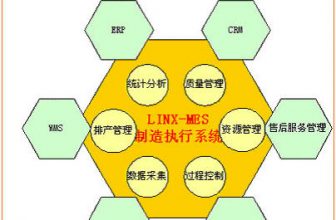
Detecting IOT: RFID production line process management
[ad_1]
The importance of production line process management and the problems of traditional process management
Process refers to the process in which one or a group of workers perform physical and chemical changes to one or several labor objects in one work place. Process is the basic link of the manufacturing process and the basic link of quality inspection. Modern enterprises often control process quality through strict process control.
In the production process of an enterprise, once a process error occurs, it will cause unpredictable losses. Rather, there will be a large backlog of semi-manufactured products in a certain process and cannot continue. The important rule is that the product is directly scrapped, which will cause losses in all aspects of the enterprise.
At present, the data collection methods of traditional production lines mainly rely on bar code recognition, manual collection and input, such as: process plan sheets, process flow cards, process handover orders, etc. Due to manual input, if the data cannot be updated in time, there is a serious lag, which will greatly limit the production capacity and reduce the production efficiency; on the other hand, the accuracy of the data is unreliable.
Why use RFID production line process management?
Due to the uniqueness of the RFID tag ID and the automatic data collection characteristics, if the production line process management is upgraded, RFID is used to manage the process, and the production line data is automatically collected, which will improve the work efficiency and data reliability of the production line in an all-round way.
Advantages of using RFID production line process management:
1. Real-time collection of production data to avoid manual input of large amounts of data, many errors and low efficiency
2. Realize production data management, meet production scheduling needs, and improve production efficiency
3. Accurate employee assessment, allowing employees to exert greater work abilities
4. Through the collection and management of data, the stability of the product quality of the production line and the process parameters are supervised
5. It can communicate with the production line PLC to obtain real-time data and realize the analysis, statistics and query of production data

Specific realization of RFID production line process management
Take the realization of an intelligent industrial production line as an example:
First of all, install an RFID tag for each product on the production line, write product information (such as batch, number, etc.) in the RFID tag, and bind it with the product, for each process position of the production line (which needs to be controlled) Node) Install RFID reader.
Secondly, when a product with an RFID tag enters the RFID process, each time the worker completes an operation, the RFID reader at the process position reads the tag data on the product, and the data is collected and sent to the system. The system completes the collection and statistics work. The enterprise provides a complete solution. It can also be combined with the company’s own ERP, SCM, MCS and other management systems to connect the entire production line system.
In this way, managers can learn from the system which processes the products on the production line have gone through, so as to accurately grasp the data, understand the production progress of the products and the working conditions of the employees.

[ad_2]




